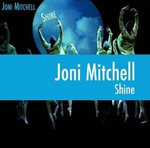The Origami of Re-Membering by Lorraine Hedtke
A brief essay. A new way of looking at the after-life? [full text available online] What speaks to me in this piece is the title—the juxtaposition—origami and remembering. What speaks to me are certain passages. Like this one. The ancient Japanese art of folding paper has fascinated me since childhood. . . Now as a I speak with people after their loved one has died, I recall the beauty of the folding metaphor. I like to think of each person’s life as having the posthumous potential to become an elaborate folded work of art. With each retelling of the stories of someone’s life, especially when these are being told to a new person—someone who never met the deceased—it is as if the deceased person’s stories are being folded into seams and creases that give contour and texture to the lives of the living. I like to think of each person’s life as having the posthumous potential to become an elaborate folded work of art. A pink lily? A crane? A white swan? There are so many ways, it would seem, of talking about the after-life. What happens after. For me, this one—the after-life as a new shape here—in the process of becoming folded and re-folded through stories—this feels to me like a new way of looking. A way potentially rich with possibilities. A pink lily.A crane.A white swan. And who knows? One shape could be folded and refolded into yet another. Anything could happen.________________________________________________ Of interest:The pink lily and blue crane and how to fold them can be found here. The white swan can be found...
read more


